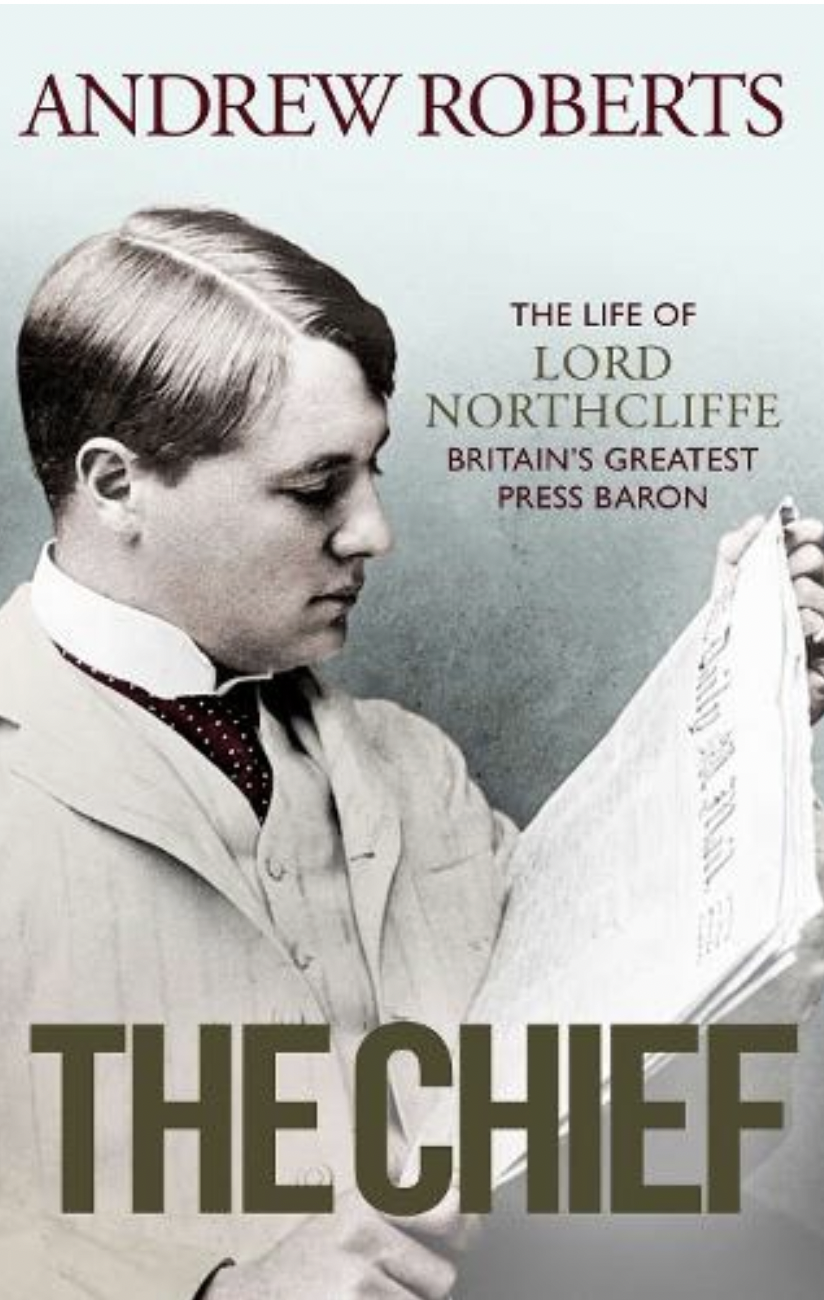
The Media Titan who made aspirational readers


Andrew Roberts, historian, visiting professor at the Department of War Studies, King’s College, London, visiting research fellow at the Hoover Institution at Stanford University, a lecturer at the New York Historical Society, and biographer of Churchill, Napoleon, and George III delivers an authoritative volume on the life of Britain’s mightiest and most controversial press baron, 1st Viscount Northcliffe, Alfred Harmsworth (1865-1922), a tough and uncompromising businessman, the greatest UK press baron, the man who created the Daily Mail and Daily Mirror, as well as owning The Times and The Observer, pre-Rupert Murdoch era, who commanded political power and changed the course of a war and helped to bring down a prime minister, while another gave him government job abroad just to get him out of the country. At one point he owned two-thirds of all the titles on Fleet Street and laid down the essential features of British popular journalism that we see now. He puts his ruthlessness and willfulness in the overall context of a life of visionary, business skill, journalistic brilliance, distinguished wartime public service and heartfelt patriotism. Harmsworth hails from a modest background, growing up on the outskirts of Dublin, by 27, to become Lord Northcliffe, and founded the media dynasty that still controls the Daily Mail Group. He presided over a magazine empire with the largest circulation in the world. He wanted his readers to know that he was on their side, which they instinctively did. His populist approach saw the importance of appealing to both sexes in his pages, by allowing his editors leeway so long as they understood and followed his vision. The formula created for the Daily Mail 125 years ago, is still world-beating to this day.
As Proprietor, Harmsworth ran the strategy for new content, often criticizing his editors on each day’s edition. He also paid close attention to the productive processes and invested in pioneering technology. As an active journalist, regularly heading near to the front in the first world war, he foresaw the threat posed by the rise of Germany. He directed content, and his brother and co-founder Harold – who became Lord Rothermere – was the business brain and inherited on Alfred’s death ( Harold’s great-grandson is the group’s current owner).
Andrew Roberts, a Daily Mail contributor, was given access to Harmsworth’s private archive. Harmsworth’s guiding principle and genius of his approach was an understanding that education and political reform had created a new class of aspirational readers, by bringing. In middle class newsman’s eye to his publications, serving up news that was interesting and sharply presented as well as important. His newspapers were pithy, Jingoism, middle-class values and features on health, money, sex, and news.
He had a keen eye for new markets even attracting female readers by coining the term “suffragette” a term of abuse. The Mirror too was conceived as a paper for women.
His wartime campaigns against inadequate munitions and in defying efforts to suppress details of the military disaster in the Dardanelles. The new prime minister David Lloyd George was sufficiently wary of Harmsworth to give him a job in America to get him out of the way
Sometimes his calls were badly wrong and damaging, like his unwavering support for Earl Haig, commander of the forces on the western front, despite his strategy proving an ineffective waste of life.
His influence is all too visible even today and those who lament the Mail’s often malignant role in society remain true to its founder’s ideals.
Harmsworth’s legacy in the story of how “The Chief” played a role in creating today’s greatest media mogul. Rupert Murdoch’s father Keith became an admirer and disciple of Harmsworth. Murdoch aped his mentor’s style that on his return home, he earned the nickname “Lord Southcliffe”.
The Chief: The Life of Lord Northcliffe, Britain’s Greatest Press Baron by Andrew Roberts, Simon & Schuster, £25, 560 pages
